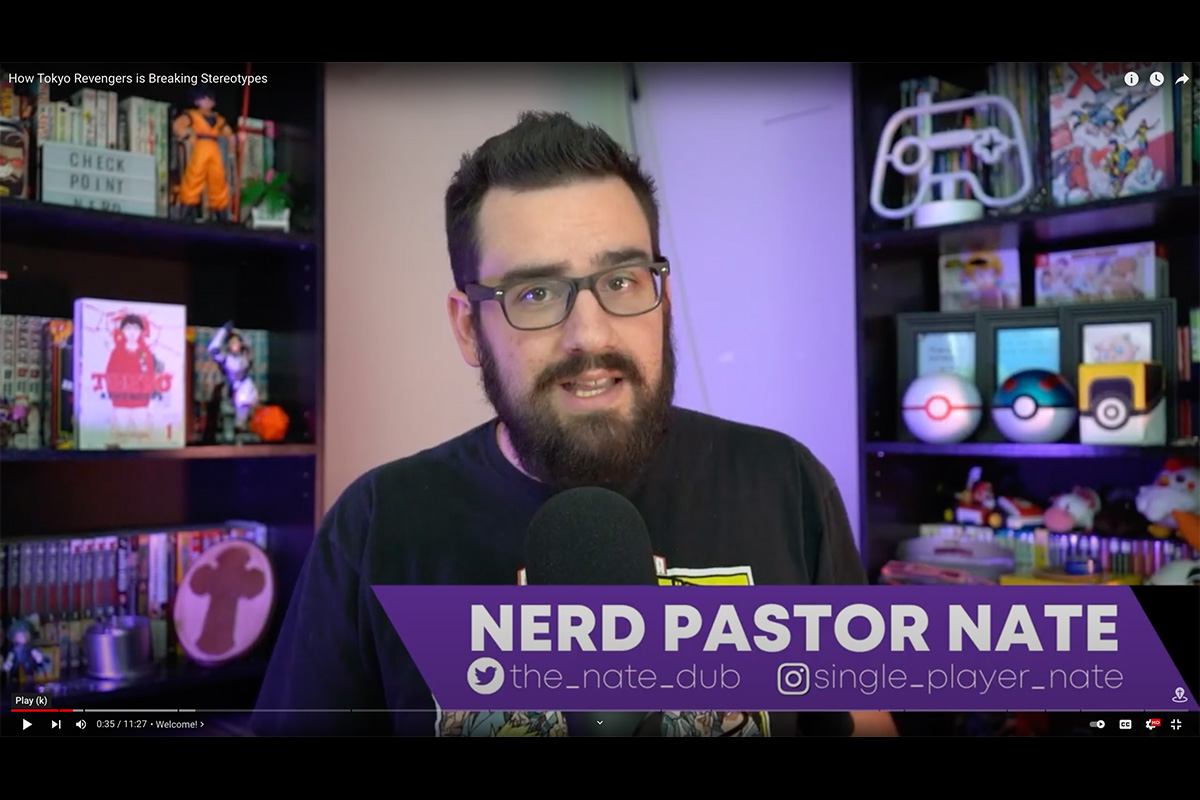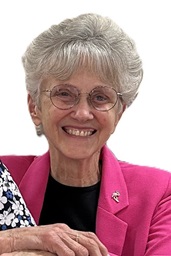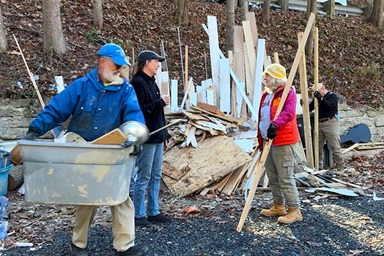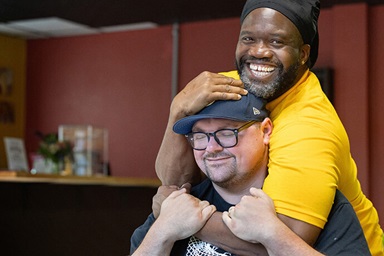Key points:
• As churches in the pandemic era have gotten creative with virtual worship, Checkpoint Church was designed to be exclusively virtual. The congregation doesn't even have a building.
• The church utilizes social media platforms Twitch, Discord and YouTube to build community.
• The Rev. Nathan Webb, self-described “nerd pastor,” says that the traditional church structure is “too good at putting up boundaries.”
As the world develops and changes, churches are embracing those changes and adapting in order to reach a new generation.
Checkpoint Church in North Carolina is one of those … sort of. While its pastor, the Rev. Nathan Webb, founded and operates the creative ministry out of Denver, North Carolina, the church has no actual physical location — by design.
Checkpoint, which describes itself as “the church for nerds, geeks and gamers,” began in 2020 and is totally based online, utilizing social media platforms to build community.
“Currently, we are found on Twitch for our livestreams, on Discord for our day-to-day communal stuff, and on YouTube for our closest comparison to 'worship' every Sunday,” said Webb.
Operating in multiple spaces for different kinds of engagement allows the ministry to evolve and develop with the needs that are brought into the spaces.
Webb, who calls himself a “nerd pastor,” uses the streaming platform Twitch for reaching out to new people, leading conversations about recently released games and other nerdy topics. These streams can have as many as 450 people watching and participating.
The church’s Discord, a community platform and app, currently has around 100 active members. He said he wants to establish a yearly physical meetup — much like comic book and gamer conventions — but that event is still in the planning process.
A preacher’s kid, Webb was originally reluctant to pursue ministry.
“I tried for years to run away from ministry,” he said, “but God kept tapping my shoulders since I was 9 years old.”
Following a conversion experience at a Christian camp in North Carolina, he knew that he was called.
“My biggest inspiration that I realized during my camp days was the love I had for my friends — most of whom were not Christian,” he said. “I've always been a nerd, and nerd-dom and church don't often overlap.”
His calling put him in the perfect place to bridge that gap between the two worlds. Within that gap exists the ability to reach new people and to spread the Word of God outside of the traditional approach.
“The traditional structure is too good at putting up boundaries,” Webb said. “There is no reason a video game ministry can't work in a rural or traditional area.
“Having a finger on the pulse of what the world is interested in is vital to the act of ministering to people. What these ministries offer is an opportunity to know that the church cares about the things that they care about and can offer some direction as to how we consume them.”
This approach seems to be working, and Webb said he’s encountered people who hate the church or couldn’t care less about the church and seen them shift from trolling to active participation.
Ryan Lelache has been part of the Checkpoint community for about six months and said the kindness and welcoming body of regular attendees has kept him coming back and wanting to get more involved.
“I've tried and often failed in ‘real-life’ churches to connect in social gatherings and small groups,” said Lelache, whose wife, a United Methodist pastor, recommended Checkpoint to him. “They didn’t just invite me into the existing conversation, but were really open when I shared interests outside of what was already ‘the norm’ and made space for those things as well.”
And Lelache never could’ve become a part of Checkpoint if it were confined to a physical building: He lives in New Jersey, more than 600 miles away from Webb in North Carolina.
This change in approach has been embraced by others in the church as well, such as the Rev. Luke Edwards, the Western North Carolina Conference associate director of church development.
“As Methodists, innovative forms of outreach and worship is in our DNA,” Edwards said. “John Wesley and Francis Asbury went out into the fields, the pubs, the prisons to preach. Nathan Webb and others are going onto Twitch.”
But, Edwards said, Wesley and Asbury didn't stop with preaching. They invited those who heard their message to join classes and bands, to build community where an encounter with God could occur. He sees Webb building similar community on Discord.
“It's every generation's job to find creative ways to pass along our rich Methodist tradition. That's what Nathan's doing,” he said.
Edwards believes that this new, explorative approach to ministry is vital to the future of the church.
“Younger generations meet people, form friendships and build community online. I think with Gen Z and the generations following them, if we don't start to build digital forms of community, we are going to lose a huge group of people,” he said.
Like Edwards, Webb is bullish on the growth of the “world parish” suggested by John Wesley. He said that the possibility of the internet and the connection of The United Methodist Church have the potential to work in tandem and change the way church is done forever.
“I couldn't be much more of an evangelist for every church ever to build their own Discord and create an online space for community to be done,” he said. “It's like someone standing there and offering you a free building space on Main Street — you're being foolish refusing the possibility.”
Webb encourages others who may be called to unconventional ministry and advises them to lean into the United Methodist connection.
“Make relationships. Work with one another. Collaborate. We're better together,” he said. “Church doesn't need to be boring. Worship shouldn't be lackluster. It doesn't have to be a gimmick — we are just doing what we love and doing it in a community that loves it, too.”
Cross is a freelance writer in Fargo, North Dakota.
News media contact: Julie Dwyer, news editor, newsdesk@umcom.org. To read more United Methodist news, subscribe to the free Daily or Weekly Digests.
Like what you're reading? Support the ministry of UM News! Your support ensures the latest denominational news, dynamic stories and informative articles will continue to connect our global community. Make a tax-deductible donation at ResourceUMC.org/GiveUMCom.




